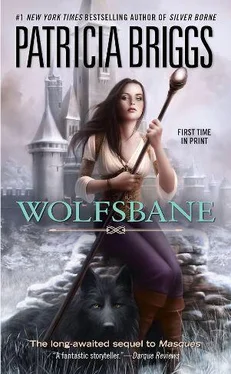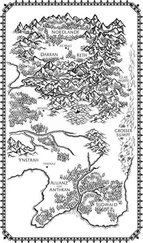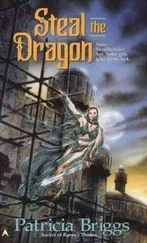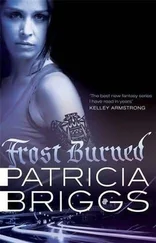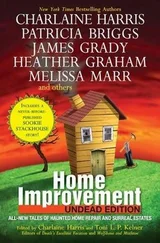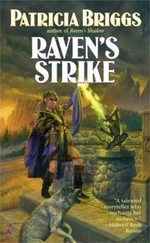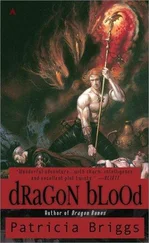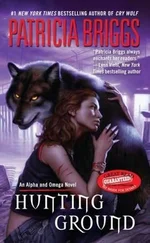Wolf shook his head. “This kind of black magic doesn’t require the night. You all will be more comfortable in the daylight.”
“Black magic?” questioned Kisrah sharply. “It shouldn’t be necessary to unwork the spell with black magic.”
“This spell was set with blood and death by three wizards. It will require sacrifice to unwork,” Wolf said.
“I thought that black magic couldn’t be worked in the day,” said Aralorn.
“It can be worked anytime,” answered Kisrah.
“Sometimes it works better at night,” corrected Wolf. In the shadows of the hedge, his pale golden eyes glittered with light reflected from the snow on the ground. The harsh macabre voice somehow made the barren garden something strange and frightening. “Terror can add power to a spell, and fear is easier to inspire in the night.”
Aralorn noticed that Kisrah’s even pace had faltered. Wolf only did things like this when he was in a particularly dark mood. She hoped that it was nothing more than talking about black magic that had brought it on and not something about unworking the spell to free the Lyon.
She hid her worry, and said dryly, “You sound like a ghoul, Wolf.” Her words cut through the mood Wolf had established, and the garden was merely a collection of plants awaiting spring again. “Is there something you haven’t told me about yourself?”
He flattened his ears in mock irritation, and said direly, “Much. But if the thought of my late sire’s ghost has failed to touch your undeveloped sense of prudence, nothing I have done will accomplish that either.”
Aralorn watched Kisrah’s expression out of the corner of her eye and was satisfied when humor replaced the unease that had been in his face earlier. The gods knew that Wolf was not a soothing man to associate with, but there was no need to worry Kisrah at this point.
“Tomorrow morning, then?” said Kisrah. “At first dawn?”
Aralorn nodded. “Tomorrow.”
“Kisrah,” said Wolf. “What did you kill to work your spell?”
“A Uriah,” he said uncomfortably. “I had intended to use my own blood—it should have been enough. I was working the spell in the basement workroom when a passageway door opened, and the Uriah came stumbling in. It must have escaped the Sianim mercenaries who took care of cleaning up the Uriah Geoffrey left scattered about. I killed it, and the spell slipped my control and used the creature’s death instead of my blood.”
“Ah,” said Wolf. “Thank you.”
Kisrah nodded and turned on his heel with every sign of a man escaping.
“Uriah,” said the hawk after Kisrah was gone, settling on the top of a trellis that bore the thorny gray vines of a climbing rose. “Human sacrifice. Aralorn, I begin to believe what you told me this morning. Maybe I have been underestimating human mages.” He stared coldly down at Wolf.
“How did you know what the Uriah are?” asked Aralorn.
“Human mages are very good at warping things unnaturally,” said Halven. “Any shapeshifter looking at a Uriah can see the true nature that human magic has perverted. Only a human mage could be so blind as to not understand his own work. Why didn’t you tell him that he’d made your task more difficult?”
“I would rather the secret of their making die with my father,” Wolf said. “I do not expect that Kisrah would be anything but repelled—but he might tell others or write it down for someone to discover.”
“Ah,” said Halven. “Sometimes it is a good thing that human mages are so blind, and some knowledge is best lost. But Kisrah’s ignorance has caused you trouble.” Halven sighed. “I had better help you control your magic, Nephew. So much of your magics require balance—of which Kisrah has some, you have little, Gerem has none, and Nevyn has less than that.”
“He’s in worse shape than I am?” asked Wolf, sounding surprised, but Aralorn thought it was more because Halven named him nephew than her uncle’s assessment of Nevyn.
Halven laughed. “Nevyn has been broken and badly mended. Your spirit is strong as an oak, wolf-wizard. It may be a bit battered, but as long as you don’t misdirect it, you’ll be fine.” He cocked his head at Aralorn. “There is something different since your marriage. You may be right.”
“She’s right about what?” asked Wolf.
“You keep out of this, Uncle,” snapped Aralorn. “Wolf, can we talk of this later?”
She could have sworn that there was laughter in Wolf’s eyes, but it was gone almost before she saw it. She couldn’t think of anything they’d said that he would find funny.
“If you’d like,” Wolf said.
“I can’t do anything about the nature of the sacrifice,” said Halven. “I can’t do anything about Nevyn. But I think I can help you with your magic problem. Aralorn, haven’t you taught him to center?”
“ I can’t center,” she said, exasperated. “Just how do you expect me to teach someone else? Besides, centering is more of an exercise in ...” Her voice trailed off as she realized what she was going to say.
“Control.” Her uncle’s voice was smug. “We need someplace warm and private.”
“We can work in my room,” suggested Aralorn. “That would allow us some privacy and warmth as well.”
“I’ll meet you there,” said the hawk, taking flight.
“Wolf,” said Aralorn, once they were alone.
“Yes?”
“You haven’t worked black magic since you left your father’s home, have you?”
“No.”
Aralorn tilted her face into the sun, though she felt no warmth on her skin. “I don’t know a lot about human magic, but I do know that good seldom comes from evil. I don’t want you to hurt yourself to save my father.”
“Aralorn,” said Wolf, “you worry too much. I have worked such magic before.”
“And chose not to do it again, until now.” She turned a rock over with the toe of her boot and kicked it into the snow.
“This is not your doing, Lady. It is my father’s work.”
“Would you work black magic if it were not my father?” she asked.
“Would he be ensorcelled if he weren’t your father?” he returned. “We’d best not keep your uncle waiting. I’ll be all right, Aralorn.”
Wolf is the only expert I have, thought Aralorn. If he says there will be no harm in it for him . . . He’d never tell her if there was.
Frowning unhappily, she started back for the castle, with Wolf padding by her side.
* * *
Aralorn lay on the bare floor of her room and reconsidered calling her room warm—without the rugs to cover it, the floor was icy. Halven was taking Wolf through some basic meditation exercises, things she’d learned the first summer she’d spent with him.
In honor of the lesson, her uncle had taken on the shape of a venerable old man, with a rounded face and belly—someone to inspire confidence, she supposed.
Wolf, to Aralorn’s surprise, had left the mask off. Halven had already seen the scars, of course—but Wolf used the mask as much for a shield as he did to cover his scars.
“Now, stop that,” her uncle admonished Wolf, in tones Aralorn would bet tomorrow’s winnings against Falhart that no one had used on Wolf in a very long time, if ever. “I don’t want you to do anything to the wood—just feel it. See the growth patterns, the years where water was hard to come by and the years where it was abundant. Feel the difference between the old oak of the original floor and the plank of maple that someone used to replace an old board—yes, that’s the one. Let yourself feel how much easier magic slides through the oak than it does through the maple. Aralorn, an exercise does no good unless you do it.”
“Yes, sir.” She grinned, obediently losing herself in the pitted surface of the wooden floorboards.
Читать дальше
